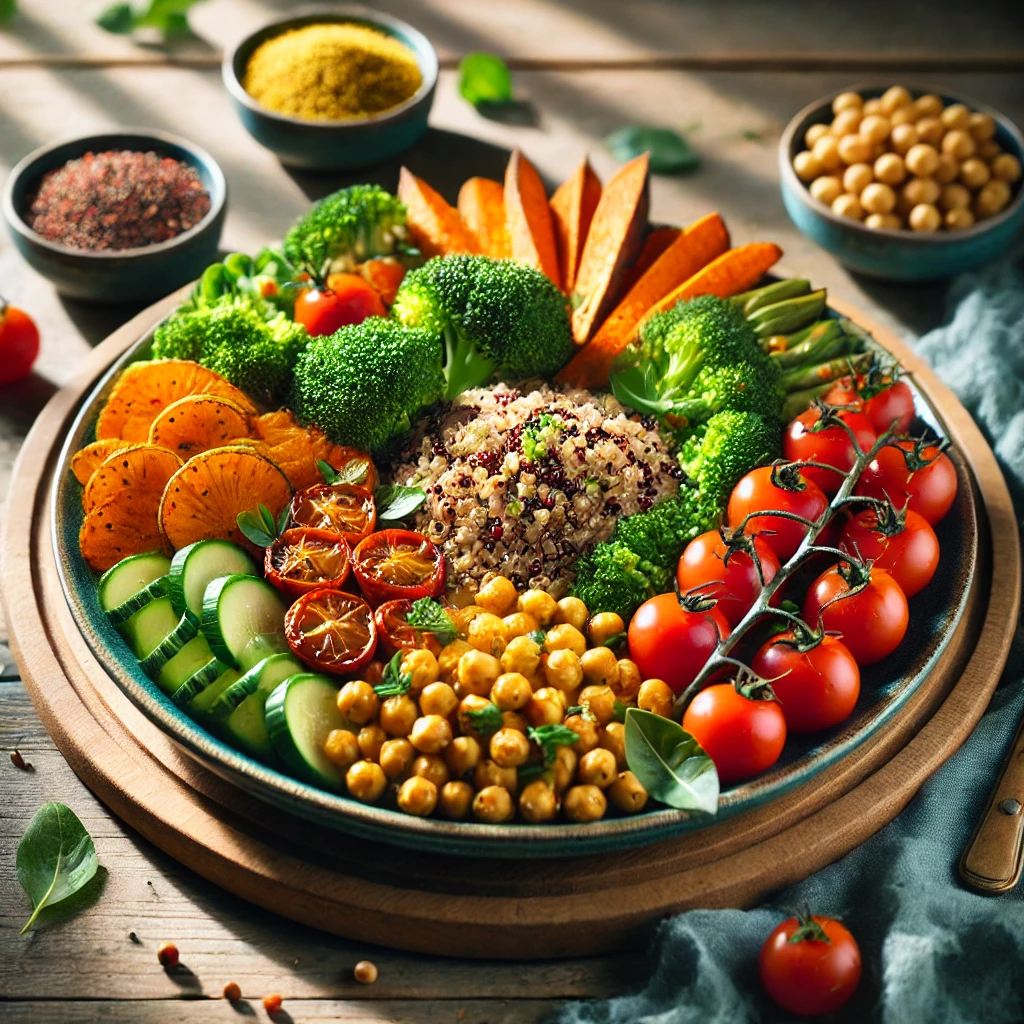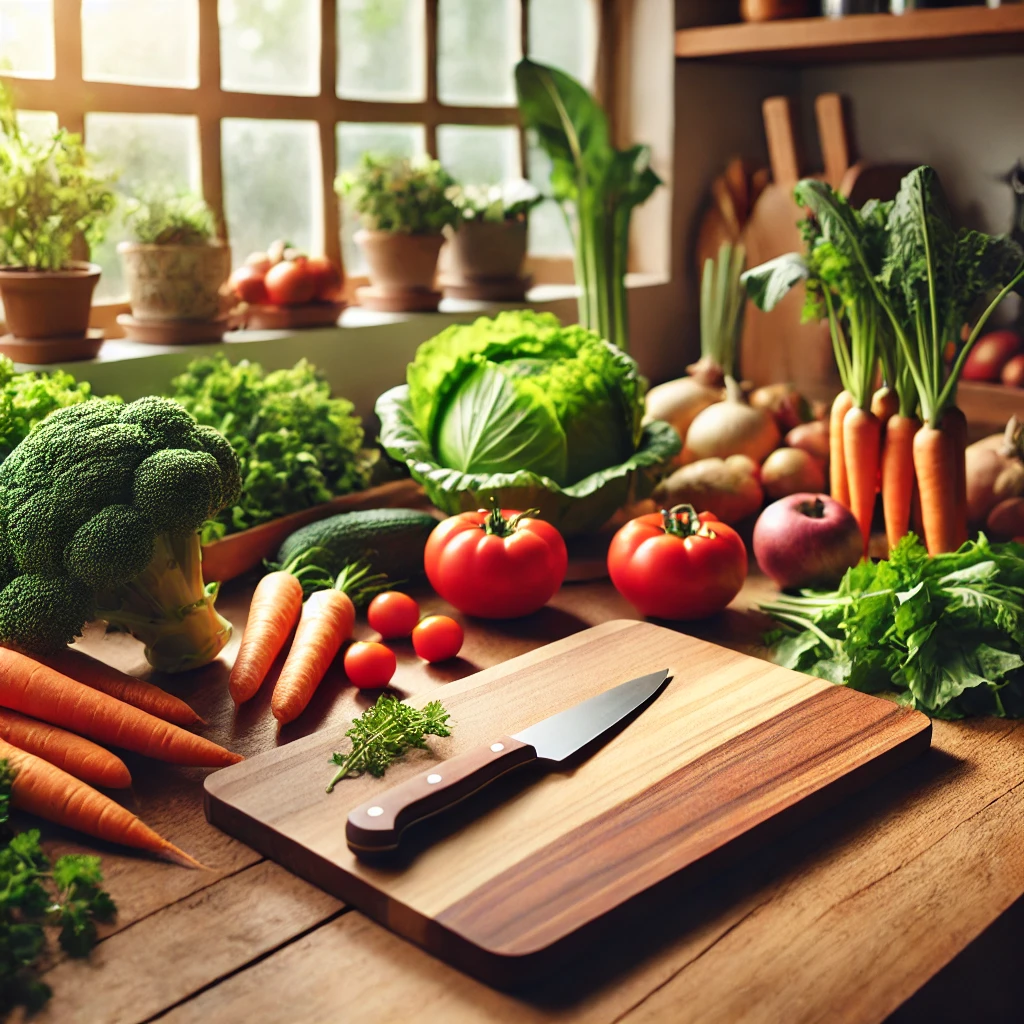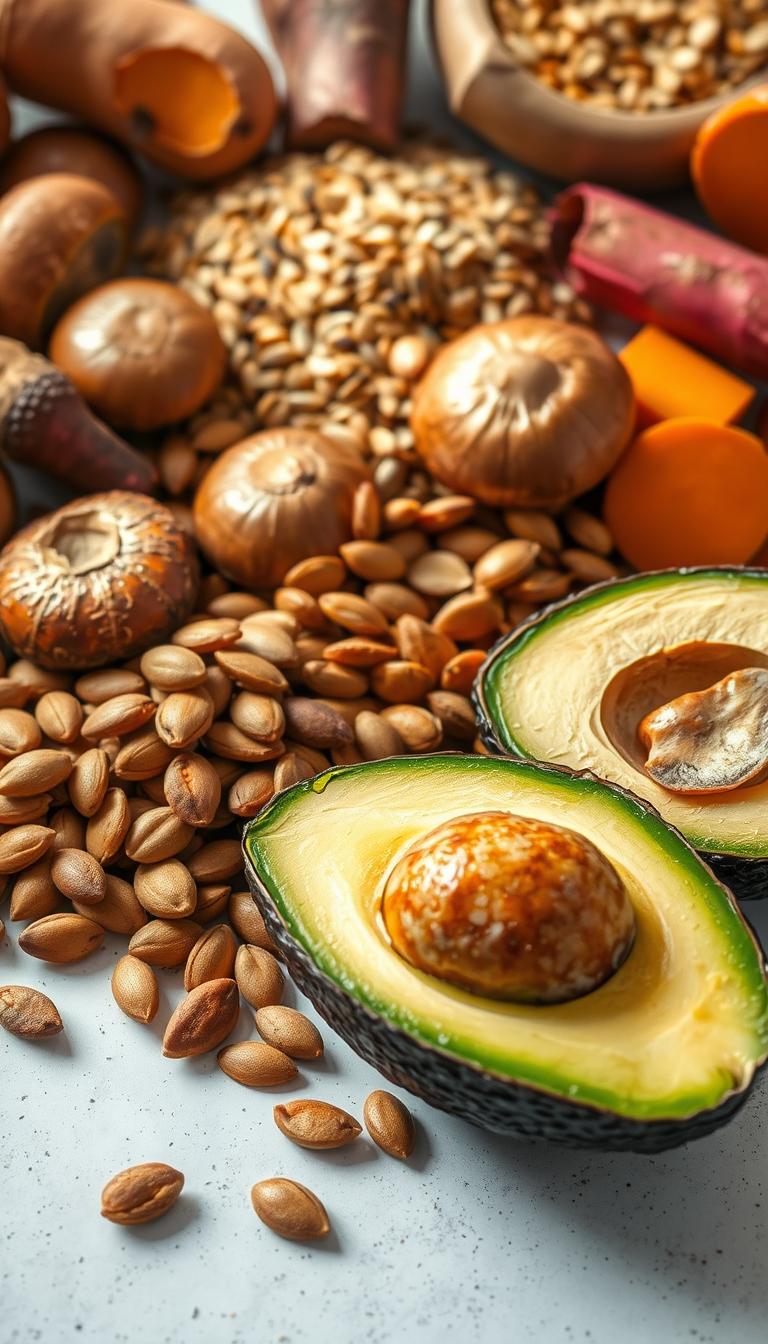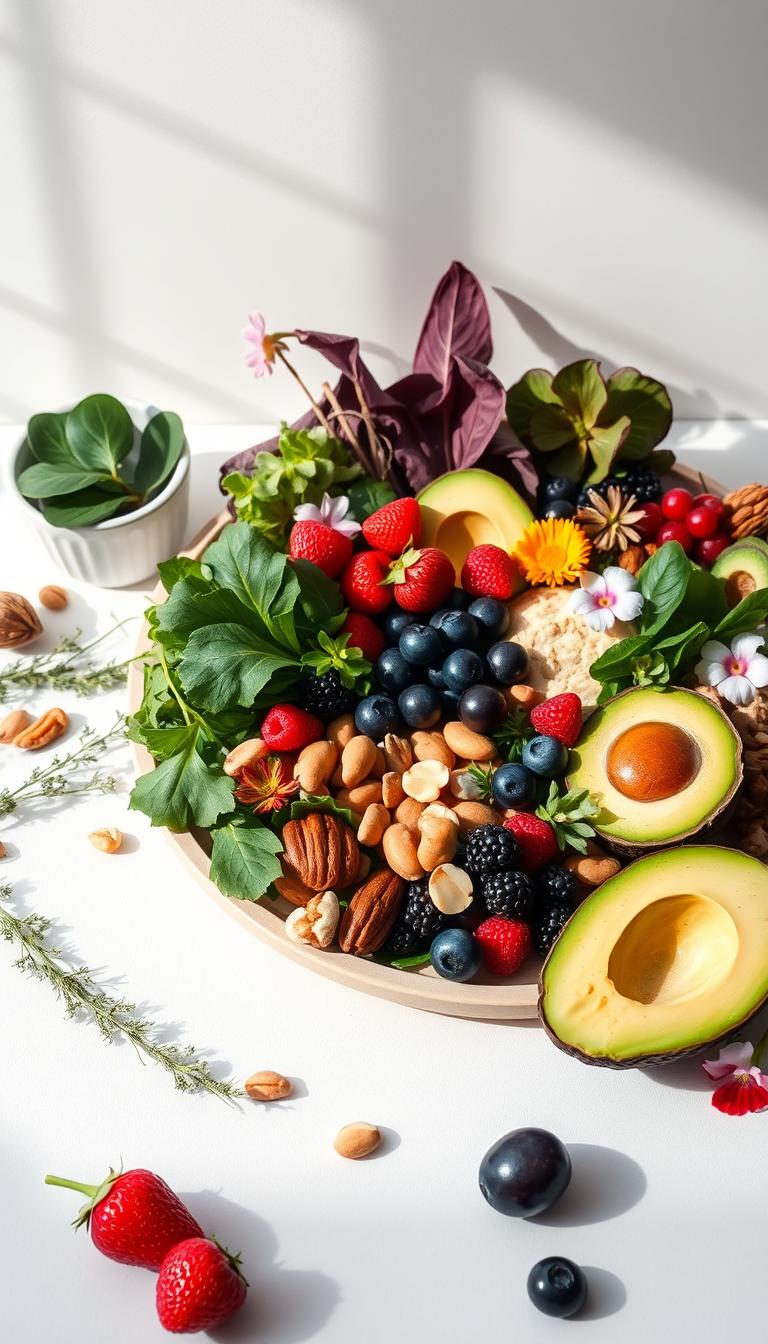
Plant Based Diet Pros and Cons and What is a Vegan Diet
Hey there, friend! Thinking about diving into the world of plant-based eating? Or maybe you’re just curious about what all the buzz is about? Either way, you’ve landed in the right place. In this blog post we’ll talk about the pros and cons of a plant based diet. Let’s break it all down, from what it means to go vegan to the perks (and a few challenges) of embracing a plant-based diet. By the end of this post, you’ll have all the juicy details to make an informed decision that works for you. Let’s dig in!
What is a Vegan Diet?
At its core, a vegan diet excludes all animal products. That means no meat, no dairy, no eggs, and often no honey. Instead, it focuses on plant-based foods like fruits, veggies, grains, nuts, seeds, and legumes. But it’s more than just a diet — for many people, veganism is a lifestyle rooted in compassion for animals and concern for the environment.
Vegans skip animal-derived items like leather, wool, and products tested on animals. If you’re new to this, don’t worry; no one expects perfection right away. It’s about making mindful choices that align with your values.
Why Go Vegan or Plant-Based?
The motivations for adopting a vegan or plant-based diet vary, but some common reasons include:

The Pros of a Plant-Based Diet
Switching to a plant-based diet has a ton of benefits. Here are some highlights:
1. Improved Heart Health
Plant-based diets are naturally lower in saturated fats and cholesterol, which can reduce the risk of heart disease. Foods like whole grains, nuts, and leafy greens are your heart’s best friends. They help regulate blood pressure, reduce bad cholesterol levels, and improve overall cardiovascular health. Studies have shown that people who consume more plant-based meals have a lower incidence of heart attacks and strokes. Plus, ingredients like flaxseeds and chia seeds are excellent sources of omega-3s, further promoting heart health.
2. Weight Management
Many people find it easier to maintain or lose weight on a plant-based diet. That’s because plant-based foods are often lower in calories but high in fiber, keeping you full and satisfied. Fiber helps regulate your appetite, preventing overeating. Additionally, nutrient-dense plant-based options like avocados, quinoa, and sweet potatoes provide long-lasting energy. Studies show that people who follow plant-based diets tend to have lower body mass indexes (BMIs) compared to those who consume meat regularly.
3. Lower Risk of Chronic Diseases
Studies show that plant-based diets can lower the risk of Type 2 diabetes, hypertension, and even certain cancers. A diet rich in antioxidants, vitamins, and minerals from fruits and veggies is a powerful ally for long-term health. Consuming a variety of colorful produce ensures you’re getting a wide range of phytonutrients, which help protect cells from damage. For instance, cruciferous vegetables like broccoli and kale contain compounds that may reduce the risk of certain cancers. Similarly, whole grains have been linked to better blood sugar control.
4. Better Digestion
Fiber-rich foods like fruits, veggies, legumes, and whole grains promote a healthy gut. Say goodbye to bloating and hello to smooth digestion! Fiber feeds the good bacteria in your gut, which play a key role in overall health. This can help reduce inflammation and improve your immune system. Moreover, regular consumption of fermented plant-based foods like kimchi or tempeh can boost gut health further. A happy gut often translates to better energy levels and improved mental clarity.
5. Environmental Benefits
By eating plants, you’re helping to conserve water, reduce greenhouse gas emissions, and protect natural ecosystems. It’s a small change that makes a big difference. Did you know it takes significantly less water to grow plants than to raise livestock? Plus, plant-based diets reduce deforestation caused by land cleared for animal farming. Supporting sustainable agriculture not only benefits the planet but also preserves biodiversity. Your plate becomes a powerful tool for combating climate change.
6. Healthy Skin and Vitality
The antioxidants and vitamins found in plant foods, particularly fresh fruits and green leafy vegetables, are a boon for your skin. These nutrients combat oxidative stress, reduce signs of aging, and promote a radiant complexion. Plant-based fats like olive oil and avocado also contribute to skin hydration and elasticity, making a plant-based lifestyle a beauty-friendly choice.
The Cons of a Plant-Based Diet
Of course, no diet is perfect, and it’s important to acknowledge the challenges:
1. Nutrient Deficiencies
Without proper planning, plant-based diets can lack certain nutrients like B12, iron, omega-3s, and calcium. However, fortified foods and supplements can easily bridge the gap. B12 is particularly important as it’s found naturally in animal products, so make sure to include fortified cereals or plant milks. For iron, focus on leafy greens, lentils, and pumpkin seeds while pairing them with vitamin C-rich foods to boost absorption. Omega-3s can be sourced from algae-based supplements or flaxseeds, and calcium from fortified orange juice or tofu.
2. Social Challenges
Eating out or attending gatherings can sometimes be tricky. Not everyone understands or accommodates plant-based diets, which can make social situations a bit awkward. For example, you might find limited options at a restaurant or have to explain your choices repeatedly. Planning ahead by checking menus or bringing a dish to share can ease these situations. Over time, your loved ones will likely become more supportive and even curious about your lifestyle.
3. Initial Learning Curve
Switching to a plant-based diet can feel overwhelming at first. Reading labels, finding new recipes, and rethinking meals take effort. But trust me, it gets easier with time. Start by focusing on simple swaps like using almond milk instead of dairy or trying veggie burgers. Apps and online resources can help you identify vegan-friendly products and inspire meal ideas. With practice, plant-based eating becomes second nature, and you’ll discover a host of delicious, convenient options.
4. Access and Affordability
While staples like beans and rice are budget-friendly, specialty vegan products (like plant-based cheeses and meats) can be pricey and harder to find, especially in smaller towns. However, you don’t need to rely on these items. Focusing on whole, unprocessed foods is not only economical but also healthier. Farmer’s markets, bulk sections, and seasonal produce can help keep costs down. Plus, as plant-based eating becomes more popular, more affordable options are becoming available.
5. Calorie Density
Plant-based foods are often less calorie-dense than animal products. If you’re not careful, you might end up feeling hungry or lacking energy. The key is to eat a variety of foods and include healthy fats like avocados and nuts. Ensure your meals are well-balanced by incorporating legumes, whole grains, and protein-rich options. Snacking on energy-dense foods like trail mix or nut butter can also help. Learning to listen to your body’s hunger cues and adjusting portion sizes makes a big difference.
6. Careful Planning for Balanced Nutrition
Unlike omnivorous diets that provide a wider array of readily available nutrients, a plant-based lifestyle requires deliberate choices to ensure all essential nutrients are covered. Nutrient-dense foods like nutritional yeast for B12, fortified plant milks, and diverse plant protein sources must be incorporated to meet dietary guidelines. Proper planning is essential for preventing deficiencies, particularly for pregnant women, athletes, or those with specific health conditions.

How to Transition to a Plant-Based Diet
If you’re thinking about making the switch, here are some tips to ease the transition:
Common Myths About Plant-Based Diets
Let’s bust some myths while we’re at it:
A Day in the Life of a Plant-Based Eater
Curious about what a typical day looks like? Here’s a sample menu:
More about veganism supported by the latest research and insights to consider:
1. Addressing Vitamin B Deficiencies:
Recent reports highlight a “silent pandemic” of vitamin B deficiencies, particularly B2 (riboflavin) and B9 (folate), affecting a significant portion of the population. These deficiencies can lead to severe health issues, including fatigue, depression, and increased risk of certain diseases. Individuals following plant-based diets, especially vegans, may be more susceptible due to the exclusion of animal-derived foods. To mitigate this risk, it’s essential to include vitamin B-rich plant foods and consider fortified products or supplements as needed.
2. Highlighting Beans as a Protein Powerhouse:
Beans are an excellent source of plant-based protein, typically providing around 15 grams per cooked cup. While they are incomplete proteins, combining beans with other plant-based foods like rice or quinoa can offer a complete amino acid profile. Beyond protein, beans are rich in fiber, vitamins, minerals, and antioxidants, contributing to satiety, gut health, blood sugar control, and reduced risks of metabolic syndrome, diabetes, and certain cancers. Incorporating a variety of beans into your diet can enhance nutritional intake and support overall health.
3. Emphasizing Sustainable Food Practices:
Feeding the growing global population sustainably is a critical challenge. The food sector contributes approximately 30% of human-generated greenhouse gases. Adopting a plant-based diet can play a significant role in reducing environmental impact. Innovative methods, such as adding seaweed to cattle feed to reduce methane emissions, are also being explored to create a more sustainable food system. A holistic approach linking soil health, dietary practices, and environmental stability is essential for a sustainable future.
4. Linking Plant-Based Diets to Cancer Risk Reduction:
Recent studies indicate a rise in certain cancers among young women, with lifestyle factors playing a significant role. To lower cancer risk, experts recommend focusing on a plant-based diet while reducing red and processed meat intake. Emphasizing whole, unprocessed plant foods can provide protective nutrients and antioxidants that contribute to cancer prevention.
5. Nutritional Considerations and Challenges:
While plant-based diets offer numerous health benefits, they also present certain nutritional challenges. Ensuring adequate intake of nutrients such as vitamin B12, iron, protein, calcium, and vitamin D requires careful planning. Incorporating fortified foods, supplements, and a variety of plant-based protein sources can help meet nutritional needs and prevent deficiencies. Being mindful of these considerations is crucial for maintaining optimal health on a plant-based diet.
Is a Plant-Based Diet Right for You?
Ultimately, only you can decide if a plant-based diet fits your lifestyle and goals. It’s not an all-or-nothing journey — every small step counts. Even incorporating more plant-based meals into your week can have a positive impact on your health and the planet.
Final Thoughts
There you have it, friend! A plant-based diet comes with plenty of benefits, but it’s not without its challenges. By educating yourself and taking it one step at a time, you can enjoy a healthier, more compassionate lifestyle. Remember, the goal isn’t perfection — it’s progress. Here’s to happy, plant-filled plates and a brighter future for us all!





